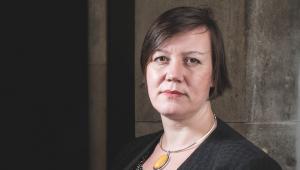Across local government, councils are increasingly recognising the potential of emerging technologies to transform their back-office functions and change working practices to deliver real value.
Areas that are set to benefit in particular from the transition to digital are finance and procurement. Here, technology is already bringing significant improvements to local authorities’ operational efficiency and faster remuneration for their suppliers, most notably through the use of innovative early payment strategies.
An underoptimised opportunity for many local government organisations until recently, early payment solutions use technology alongside process and change expertise to help organisations drive effectiveness and efficiencies within existing purchase to pay (P2P) processes. This means buyers can not only create new income and savings from existing cost streams but also achieve accelerated payments to suppliers in the process. A true win-win scenario.
It’s a particularly timely innovation with the thorny issue of late payment still proving a perennial headache for the average small business. Indeed, the latest figures show more than 308,000 small and medium-sized enterprises (SMEs) considered themselves to be in financial difficulty at the end of the second quarter of this year, with as many as eight in 10 suffering from continual cash flow issues as a result of late payment.
So how does the process work? Through a combination of technology, process re-engineering and supplier onboarding, specialist early payment providers help put local authorities in a position where they can pay a significant proportion of suppliers’ invoices on or before day 10 after invoice receipt. Where suppliers elect to participate, a pre-agreed early payment rebate, directly proportionate to how early the invoice is settled, is applied dynamically as an invoice is paid. This creates an income/savings stream for the council from its existing spend and injects liquidity directly into the supply chain.
Quite apart from the obvious financial benefits – across our existing client programmes, some larger councils are seeing upwards of £50,000 of early payment income in rebates each month – the process is delivering vital working capital to suppliers typically 20 days earlier than their standard 30 day contracted terms.
In turn, this is helping councils to forge stronger relationships with their supplier base and also work cost-effectively with more SMEs in line with the government’s target of placing a third of procurement spend with small and micro suppliers by 2020.
Better business relationships
Neil Copley, service director for finance at Barnsley Metropolitan Borough Council, spoke about the value gained from the Oxygen Finance early payment programme. “As council budgets get tighter, we have to look for ways to innovate and deliver better services for less. This was an ‘outside the box’ solution – but it is really working for the local economy and for the council. Through this programme we have established better relationships with local businesses – this is the real added value that all local authorities should be looking for,” he says.
As with any transformational change, digital innovations take time to gain favour and become fully embedded within public sector organisations. But for the early adopters of this fresh approach to an age-old challenge, the benefits of a well thought out and operationally effective payment strategy are going well beyond the bottom line, for buyers and suppliers alike.











